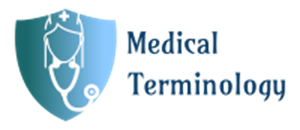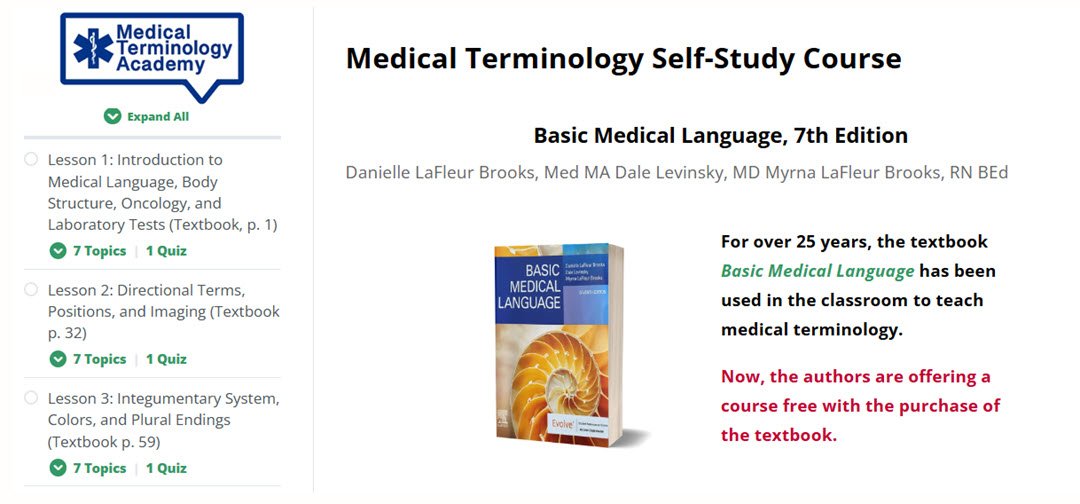Do you teach a course on medical terminology?
You’re in the right place to gain insights into enhancing your teaching and making things more exciting and engaging for your students.
Medical terminology can be intimidating, particularly for young students. With so many words to learn and knowing that your young students have little time and are often distracted, what are you supposed to do?

5 Tips for Teaching Medical Terminology
It can be tempting to stress studying complex terms and their relationships to human anatomy and treatments. However, there are fun and effective ways for young students to learn and for you to teach medical terminology.
Here are some tips for teaching and helping your students learn and remember medical terms without boredom or stress.
Learn Roots, Prefixes, and Suffixes
A straightforward way to learn medical terminology is to focus on the roots, prefixes, and suffixes! The Latin or Greek languages are the root of many medical term components.
Learning word roots is exciting and educational. You can teach a bit about these historic languages while providing insight into the structure and meaning of medical terms.
Here is one example: the term cardiology. The root “cardi—” means heart, and the suffix “-ology” means the study of. By understanding these components, you can decode many medical terms, making them less daunting.
Make A Medical Terminology Game
Creating a game may sound like a lot of work, but it’s a piece of cake! You can make a medical terminology bingo, Jeopardy, or matching game using an online template or colored flashcards.
Gamification transforms learning, making it more engaging and exciting. You’ll get bonus points if you make this a study game with some exciting competition. Not only will young students learn, but they will enjoy the process, making it a memorable experience. You can even incorporate elements from an online medical terminology course to enhance your game.
Engage Visual Memory
Visual memory is powerful. When you see images and other visuals, your brain encodes that information into memory. To take it a step further, when you pair a word with an image, students are more likely to remember it.
It also helps students if they hear or say the word aloud as they visualize it. Pair the medical term with a diagram, photo, or visual memory to help your students learn and remember it faster. Plus, if you doodle or create your image, you can make it as silly and whacky as you want. This method is particularly effective for visual learners and can be a fun addition to your study routine.
Here is an example of how to teach anatomical plains by using playdough.
Teach Anatomic Planes with Playdough
This clever blog post, published on the Medical Terminology Blog, uses a video to make the point.
Quizzes Can Be (Are) Fun!
Quizzing often doesn’t mean every class. Quizzing is both a fun and engaging activity. Use quizzes to reinforce what you have recently taught. There shouldn’t be too large of a lapse in time between the teaching and the quiz.
If you engage with shorter quizzes more frequently, your students will learn the terminology faster. Break up your word bank of medical terms and create your quiz, or find a handy dandy app to do it for you.
Here is an example of an entire blog category dedicated to fun quizzes.
Here is another example from the Medical Terminology Academy. Every lesson has a fun interactive quiz. Plus, this online medical terminology course is free (with the purchase of the textbook).
Regular quizzing helps reinforce memory and allows students (and you) to track progress.
Bonus Resources to Help Students Study Medical Terminology
- Oxford Medical Dictionary: This app includes over 140 illustrations, diagrams, and 12,000 medical terminology entries. It’s an excellent resource for visual learners and those who want to see terms in context.
- Med Term Scramble: Isn’t this one cool? It’s a medical terminology study app using Scramble! With over 30-word lists, this app is available on Android and iOS devices. It adds an element of fun to your teaching sessions.
- Quizlet: You might have used Quizlet before. With Quizlet, you can access flashcards created by others or create your own digital set of flashcards. With Quizlet, your students can assess themselves on medical terminology. This user-friendly platform allows for collaborative learning.
- Medical Terminology Academy: This online resource covers everything we have covered in this blog post.
- A time-tested textbook (must be purchased)
- Online Materials
- Additional resources using the resources at Evolve
- Visual aids such as electronic and paper flashcards
- Many varied exercises – students may choose an exercise that fits their learning style.
- Online games, quizzes, videos, spelling, and pronunciation
- A fun quiz at the end of each lesson – you can repeat them as often as you like
If you want a more structured approach, consider enrolling students in a medical terminology online course. Many of these courses are designed specifically for high school students and aspiring professionals. They provide a comprehensive overview of medical terms, their meanings, and how they are used in healthcare.
Some free online courses allow students to learn independently without financial pressure.
In conclusion, mastering medical terminology is an essential skill for anyone interested in pursuing a career in healthcare. If you teach medical terminology, these tips and resources can enhance your teaching approach. They can enhance the learning experience for your students and make your teaching easier.

An Online Medical Terminology Course
Here is an online course worth checking out. It is offered by the Medical Terminology Academy and is based on the popular textbook Basic Medical Language (7th Edition) published by Elsevier. Access to Evolve is included with the purchase of the text. Elsevier has a proud publishing history built on valued partnerships with authors to bring quality products to professionals and institutions worldwide.
For over 25 years, the textbook Basic Medical Language has been used to teach medical terminology in the classroom.
Now, the authors are offering a course free with the purchase of the textbook.
Click here to learn more about this online medical terminology course and textbook.

